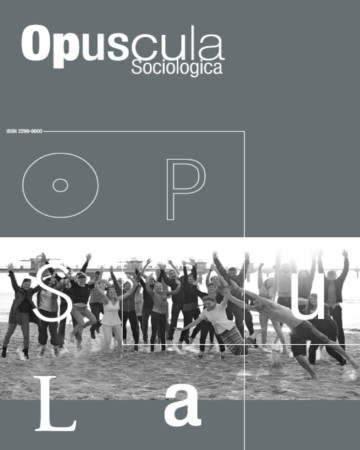Enklawowy charakter życia polskich zesłańców
Enclave-like character of polish exiles’ lives.
Margin notes from research on the Siberian mother figure
Author(s): Dorota Bazuń, Magdalena PokrzyńskaSubject(s): Social Sciences, Sociology
Published by: Wydawnictwo Naukowe Uniwersytetu Szczecińskiego
Keywords: exile; enclave; marginalization; inclusion; exclusion
Summary/Abstract: The text is based on the former analysis of Polish women’s activities in the context of social changes in the aftermath of being deported deep into the Soviet Union in the 1940s. More specifically, the paper presents deportees’ life as a process of creating socialenclaves. We describe the way the exiled were forced to shape new social environments, separated in some respects, namely the enclaves. The main question is: In which way were the lives of Poles exiled to the USSR during the WW II marked and shaped by the process of creating enclaves? The tension between tendencies displayed while adjusting to the new environment (inclusion) andthe process of challenging some values and norms (exclusion) are pointed out.In the paper, the process of maintaining the ties reaching back to the times prior to the exile and the necessity of adapting old norms, values and cultural factors to the new context of deportation are also explained. The text is chronologically ordered and opens with the description of first arrests and transportations. Arrests, transportation to the USSR, living in exile and coming back to Poland are described. Some aspects of functioning of former deportees in the present are also addressed. The lives of deportees during the exile and after it as well created a kind of a different social world , which had features of enclaves.
Journal: Opuscula Sociologica
- Issue Year: 7/2014
- Issue No: 1
- Page Range: 41-49
- Page Count: 9
- Language: Polish

